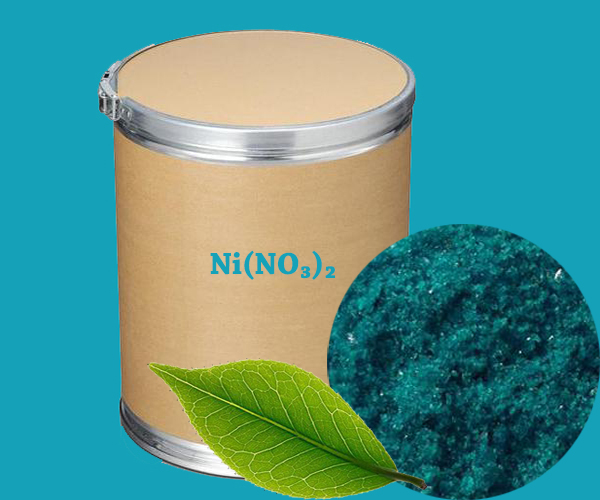Nickel Nitrate is an attractive emerald green hygroscopic and odourless crystalline solid. It is a unique chemical compound that is non-combustible but has the ability to accelerate the burning of combustible materials. Nickel Nitrate is used in a nickel plating and is also used to get nickel catalysts for use in chemical production.
Properties
Chemical formula : Ni(NO3)2 or N2NiO6
Chemical names : Nickel(II) nitrate, Nickel dinitrate, Nickelous nitrate
Molecular weight : 182.701 g/mol (anhydrous) ;290.79 g/mol (hexahydrate)
Density : 2.05 g/cm3 (hexahydrate)
Melting point : 56.7 °C (hexahydrate)
Boiling point : 136.7 °C (hexahydrate)
Solubility : Soluble in Ethanol
Use Of Nickel Nitrate
Nickel nitrate has a variety of uses in different fields, including:
Electroplating: Nickel nitrate is applied in electroplating processes. It electroplates nickel onto metal objects to upgrade their durability, and resistance to wear and corrosion.
Catalyst: Nickel nitrate is utilized as a catalyst in various chemical reactions, like the oxidation of alcohols and the hydrogenation of organic compounds.
Glass industry: Nickel nitrate is applied to manufacture coloured glass. It can leave a green colour or a deep blue colour on the glass.
Ceramics industry: Nickel nitrate is used as an additive to ceramics to produce ceramic pigments and glazes.
Chemical synthesis: Nickel nitrate is a reagent and is used in various chemical reactions, like in the preparation of nickel complexes and organic compounds.
Agriculture: Nickel nitrate is a fertilizer and is hugely employed in agriculture. It is an essential nutrient for the growth and development of some plants, like soybeans and wheat.
Pharmaceutical industry: Nickel nitrate is used in the manufacture of drugs, like antihistamines and antibiotics.
 English
English Español
Español Português
Português Français
Français Deutsch
Deutsch Русский
Русский 中文
中文 日本語
日本語
